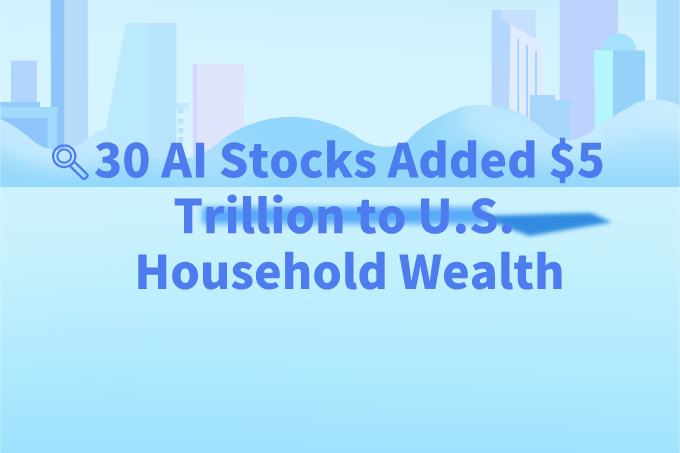
The AI boom isn’t just reshaping Silicon Valley—it’s padding American wallets. According to a new JPMorgan Chase report, a basket of 30 AI-related stocks has added more than $5 trillion in household wealth over the past year, fueling consumer spending and driving a big chunk of the market’s gains.
The "AI 30" Driving the Market
JPMorgan analysts Abiel Reinhart and Michael Feroli estimate that these 30 names now account for about 44% of the S&P 500’s market capitalization. The list reads like a who’s who of tech and chipmaking:
-
Nvidia, Microsoft, Apple, Alphabet, Amazon, Meta, Broadcom, Tesla, Oracle, Palantir, AMD, Salesforce, IBM, Uber, ServiceNow, Qualcomm, Arista Networks, Adobe, Micron, Palo Alto Networks, Intel, CrowdStrike, Constellation Energy, Cadence Design, Dell, NXP Semiconductors, Fortinet, Digital Realty Trust, Hewlett Packard Enterprise, and Super Micro Computer.
Nearly half of the group comes from semiconductors and hardware, with the rest spread across software, cloud, and consulting. A couple of names—Tesla and Uber—represent the automotive and robotics angle of the AI story.
Wealth Effect: From Stocks to Spending
The analysts say the surge in these stocks has boosted U.S. household wealth by $5 trillion, which in turn has added about $180 billion to annual consumer spending—roughly 0.9% of total consumption. That’s the so-called wealth effect in action: when portfolios swell, people feel more comfortable swiping their credit cards.
But there’s a flip side. If AI stocks make up nearly half the S&P 500, any pullback could sting. JPMorgan warns that a 10% drop in these names would erase $2.7 trillion in household wealth and shave $95 billion off consumer spending.
Analysts Still Bullish—For Now
Despite the risks, JPMorgan remains upbeat on the long-term potential of AI stocks. The bank’s proprietary methodology for selecting the "AI 30" tracks companies most frequently mentioned in connection with AI in news coverage and earnings calls.
And so far, the momentum hasn’t slowed. During the current third-quarter earnings season, several tech giants—including TSMC—have reported strong AI-driven demand. Morgan Stanley added last week that the cost of this investment wave could be fully recouped within a few years.
The Bottom Line
The AI trade has gone from hype to hard numbers, with $5 trillion in household wealth gains to show for it. But with so much of the market concentrated in a handful of names, the stakes are high. For now, the AI boom is still powering portfolios and spending—but if sentiment shifts, the fallout could be just as dramatic.
